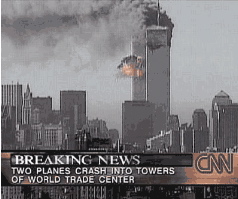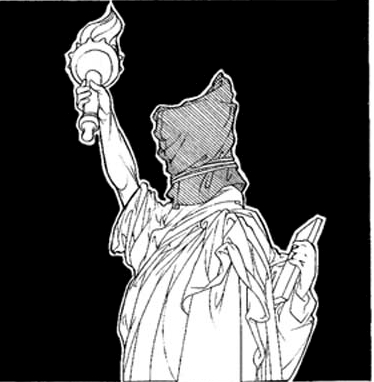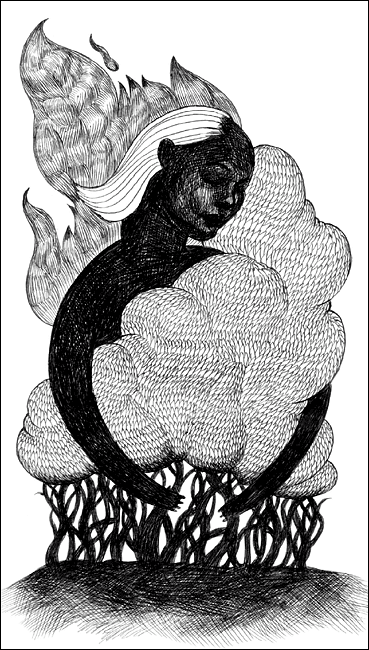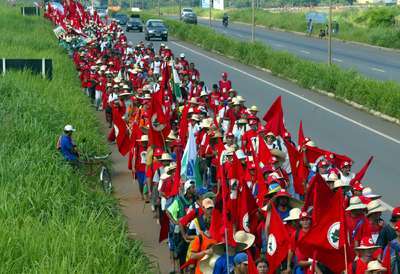The class meets three times a week, for an hour and a half each.
Attendance
and punctuality are mandatory (absences & tardiness will be
penalized). All students will be organized for
the duration of the course into eight
student groups of three students each. If need be, some groups may have
to add a fourth student.
I)
SANDERSON & ALDERSON CHAPTER TESTS. Dr. Santos will lecture on each of the 11 chapters of the
Sanderson
& Alderson textbook, usually once a week on Mondays (only on week 2
will he lecture on two chapters). Using the campus
web-based WebCT
testing service, students must take up to two tests on each of the
chapters, and they must do so anytime during the same week period Dr.
Santos
lectures on each of them, but no later than midnight of each Sunday in
question -- EXCEPT for the FIRST
THREE CHAPTERS TESTS, all of
which may be taken anytime up to TUESDAY MIDNIGHT, JANUARY 17. This will allow students to rev up in their study and work out in
time all the glitches they may encounter in their computer testing. After that day, all
chapter testing deadlines will fall on the Sundays in which each
chapter is assigned.
Note: Students may
take up to two
tests per chapter if need be, to improve their scores
(if so, the final chapter score will be the average of the two test
scores).
Each test consists of 20 multiple choice questions; the student has one
hour to complete it from the moment the test commences. Below
are more detailed instructions on how
to
take these tests.
II. STUDENT GROUP PRESENTATIONS.
On week 3 we will begin to have student group presentations on Fridays
(see schedule below), based on readings from the Goodwin & Jasper
reader on social movements - three articles from a selected "Part" of
the reader every Friday session. Every student must
come prepared to discuss these article readings even if he/she is not
presenting. Each student presentation -- PowerPoint is preferred, but
overhead slides
and posters are OK, too - will be on one of the selected articles and
should last no more than 15 minutes, followed by some discussion before the
next presentation. Each
student presentation should cover the following areas:
(1) A BRIEF SUMMARY
OF THE ARTICLE: identify its main points, factual claims or theoretical
arguments, and/or historical explanations;
you may select and share a few of the most
interesting quotes, charts or figures;
(2) ANSWER THE
QUESTION(S) RAISED AT THE END OF THE "INTRODUCTION" TO THE "PART"
THAT IS PERTINENT TO YOUR ARTICLE
(3) MAKE YOUR
CRITICAL ASSESSMENT OF THE ARTICLE: What did you like or agreed with
most/least, and why?
(4) END WITH A
QUESTION OR ISSUE FOR FURTHER CLASS DISCUSSION.
When
students from a group are presenting articles from the reader on a
given Friday, they will be held responsible for setting up and testing
their presentations in advance of the class. Electronic or paper copies
of their presentations should be emailed or given to Dr. Santos on the
day of the presentations.
III) WEB
READING REPORTS.
Dr. Santos will also lecture on each of the five web readings assigned
-
usually on Wednesdays. On those days (see schedule
below) students
must come to class prepared to discuss the assigned
web reading for the day. To ensure that they do, on those days students
must bring to class a written "READING ASSESSMENT," of no
more than two pages, on the
assigned web reading for the day. No
late reading assessments will be accepted, unless the students
has
previously arranged an
authorized absence from Dr. Santos.
These reading assessments must not summarize or repeat the
readings,
but must personally and critically respond to them,
express what the student thinks
about them: you should identify the
areas
of strong agreement and disagreement
with
the author, explaining why you feel that way, as well as raise
questions, or
anything in particular that caused you a revelation, amazement,
perplexity, or
surprise.
Whatever you write, you should explain your
specific
analytical and personal reasons for doing so. The
reading
assessment need not
cover
every issue found in the assigned reading for the day, but it
should
demonstrate
that you read it well by judiciously
choosing what to comment on. A
very bad assessment will
reveal the student read
very little or very
superficially, just to do the assignment (it's called "going through
the
motions"). A good
assessment
will demonstrate the student really read all the material and did a
serious
intellectual effort to identify and critically grapple with the main
issues involved.
At the end
of their reading
assessments,
students should always list a couple of questions or issues for class
discussion. On such days where a web reading was assigned, Dr. Santos
will ask for a volunteer or two, or randomly select a couple of
students, to
read their assessments.
Please
be punctual and be prepared! Also, please put on top of your reading
assessments your name, the date, and the
reading you are assessing, and turn it in at the end of class.
To access the web readings, click on their links placed in the
schedule below. Once you do that, you will be prompted to enter a
username
and a password (only once
per session); these two access codes are generic (meaning they are the
same for
everyone) and will be announced in class. (Please
note:
these web readings' access codes are different
from the
username and password you have
been
individually assigned to access WebCT testing.)
IV. GROUP RESEARCH PROJECTS: In
lieu of final exams, each group
will design, research,
and write a research project on a
topic relating to social change and social movements, due by 11:00 am,
Friday March
17 at Dr. Santos' office. The particular subject matter and
time period
may be as broad or narrow as each group chooses; it may cover the whole
world, a region of it, or just a country; and cover a time frame of
several centuries or just a few decades or just the contemporary scene.
The subject
matter may be divided up among the students chronologically,
thematically, or in comparative fashion between peoples, classes,
movements, technologies, and geographies, but it
ultimately must be historically grounded and sociologically oriented,
tracing and explaining actual cases of social change.
The student groups must obtain approval
from Dr. Santos
for both their overall group topic and for their individual
subtopics no later than February 15. Group delegates may visit and
consult with Dr. Santos to accomplish
this.
Though the final research volume should reflect the group effort,
each
student will individually write his or her own contributing papers,
between 5 and 6 pages in length (apart from the bibliography),
double-spaced, font 12, with one-inch margins. Students will submit
their individual papers electronically (in Word, please) to Dr. Santos'
email address, and their
research volume in paper at his office. The volume should be bound,
have a
title
page, a table of contents listing each individual title and student
author,
and the actual papers; continuous page numbering between papers and a
single, common
volume bibliography
are actually discouraged - don't waste time; each paper should start
with the paper title and author at
the
top, be independently numbered, and have a bibliography at the end.
Each individual paper should have a well
stated, well focused
research hypothesis, a summary of the literature read and the
key
descriptive data, and a critical analysis section leading to a
conclusion. Papers
will
be graded for clarity and
organization, quality of analysis, and
accuracy
and relevance of assembled data.
For guidelines on how to write a good research term paper, citations
&
bibliographic styles, etc., please go to the following URL: http://www.csub.edu/~gsantos/Guide-Paper.html.
Research Extra Credit: There
are two general studies courses that students are strongly
encouraged to take if they need to develop their research skills, and
if they do will receive extra credit
for this course (Soc 338) as well:
GST 126 - Researching the Electronic Library
(2 units)
Introduces students to effective research techniques using Library
electronic resources. Emphasis will be placed upon skills necessary for
the identification, retrieval, and evaluation of information for
general and specific topics. Students will acquire the competencies
necessary to develop an effective search strategy and find research
materials, including references to journal articles, full text articles
in electronic format, government publications, books, and Internet
resources.
GST 153 - Research on the
Internet (2 units)
Introduces students to the information resources available on the
Internet for research purposes Students will develop general knowledge
of the Internet, navigation skills, effective search strategy skills,
familiarity with Internet finding tools, evaluation methodologies and
other Internet research skills.
Plagiarism: To
prevent students from wittingly or unwittingly engaging in plagiarism,
Dr. Santos strongly recommends students to carefully read and abide by
the document CSUB
Classifications of Plagiarism found at: http://www.csub.edu/tlc/options/resources/plagiarism/4plagiarimclassifications.htm.
Furthermore, students are advised that all papers will be
submitted to
TurnItIn.com, a
professional web site that some CSUB faculty subscribe to and now
routinely
use to quickly detect plagiarism. Anyone found guilty of engaging in
plagiarism will automatically fail the course and be reported to
the Office of Student Discipline and Judicial Affairs for further
disciplinary action.
V. GRADING:
The chapter tests from the Sanderson &
Alderson book are collectively worth 55 points (5 points per chapter
score); the reading assessments of the web readings are collectively worth 15 points
(3 points per assessment); the class presentation is worth 10 points;
the research term paper is worth 20 points. Perfect attendance will be
rewarded with 3 extra points (and a point is lost for each absence).
The final letter
grade will be assigned, on a
scale
of 0 to 100, as follows:
| 94-100 = A |
87-89 = B+ |
77-79 = C+ |
65-69 = D |
| 90-93 = A- |
84-86 = B |
74-76 = C |
< 65 = F |
|
80-83 = B- |
70-73 = C- |
|
VI. OFFICE HOURS: All
students are
encouraged to
visit Dr. Santos regularly during his posted office hours, especially
to
ensure
their research paper topics are
well chosen and their class presentations
well organized, or to discuss anything related to the
texts
or the class lectures/videos/discussions. Phone
calls during office hours are also encouraged when students can't come.
Very brief and to the
point
e-mail messages to Dr. Santos (NOT a substitute for office visits or
calls,
please)
may be sent to: santos_class@csub.edu,
but do not expect answers to open or longish questions.

|
Instructions
on Taking Quizzes and
Tests at CSUB's WebCT:
To gain access: go to the CSUB WebCT site: click and bookmark the
following URL address:
http://webct.csub.edu/
If you are doing
it from
an off campus computer, make sure your browser is properly
configured (click around WebCT support links and read how you can ensure
your browser is properly configured).
Access
Codes: You will need to know
your WebCT ID and password. All CSUB enrolled students have a "Runner" email
account. Your WebCT ID is the
same as your Runner Mail Logon ID --
that is, whatever prefix goes before the "@runner.csub.edu"
domain. For example, the WebCT ID for John Smith
(jsmith4@runner.csub.edu) would be jsmith4. Your initial WebCT password is the last
five digits of your CSUB Student ID # (in past enrolled
students
it might be the last five digits of their Social Security #).
Once logged on to WebCT, you will be asked to change it immediately
(important note: if
you have used WebCT before you'll need to enter your old password).
Choose an easy to remember, easy to type new password. We also suggest
that you set up your login hint
immediately - and write all these codes somewhere where you will not
loose them, nor expose them to theft by others.
If
you need
help: If you don't know your CSUB RunnerMail Logon ID or if
you've changed your password and have forgotten it, contact the Student Help Desk at 664-2307, or the Student Technology Help Desk in the library at (661) 665-6677 or go
to Lower
Level Room 1 during office hours.
Be
prepared!
The maximum duration for each chapter test is 60 minutes. After
each weekly deadline, access to any given chapter test will be closed
and no late testing will be possible. So make sure you have prepared
well, chosen a day, time & place well, and have ample time and
tranquility (with no
distractions) to begin testing; take time to read carefully
each question before you answer it - do not rush! (a common
mistake). You may take the test with the open book, but exclusively on
your own, please. Never plan to take a test in two or more
sittings; plan always to take
each test in a single session
(the computer usually freezes incomplete tests).
Save
your
answers. If
you change your mind on a specific answer, don't forget to save
it again! And don't forget to send your quiz/test to grade
when you are done (lots of students forget this last step and their
scores are not computed!).
Security
precaution: If you are using a public computer always quit both
the WebCT site and the browser (Netscape or Explorer) after you
are done with testing -- otherwise, someone may access your own
WebCT account and "try out" some tests! This is because your access
codes stay active until you quit the browser. And remember, never
share your testing access codes nor login hint with anyone! And make
these codes and hints truly hard to guess -
we've already
had cases of test theft due to easy code choices or careless sharing
made!
Cheating
Warning: Students are
hereby formally forewarned that anybody
caught cheating on the tests will automatically
fail the course. Be warned: WebCT
has a monitoring capability that automatically "flags" for instructors
a variety of potential cheating cases and situations -- including
comparing student answers, times of testing, etc.
|








